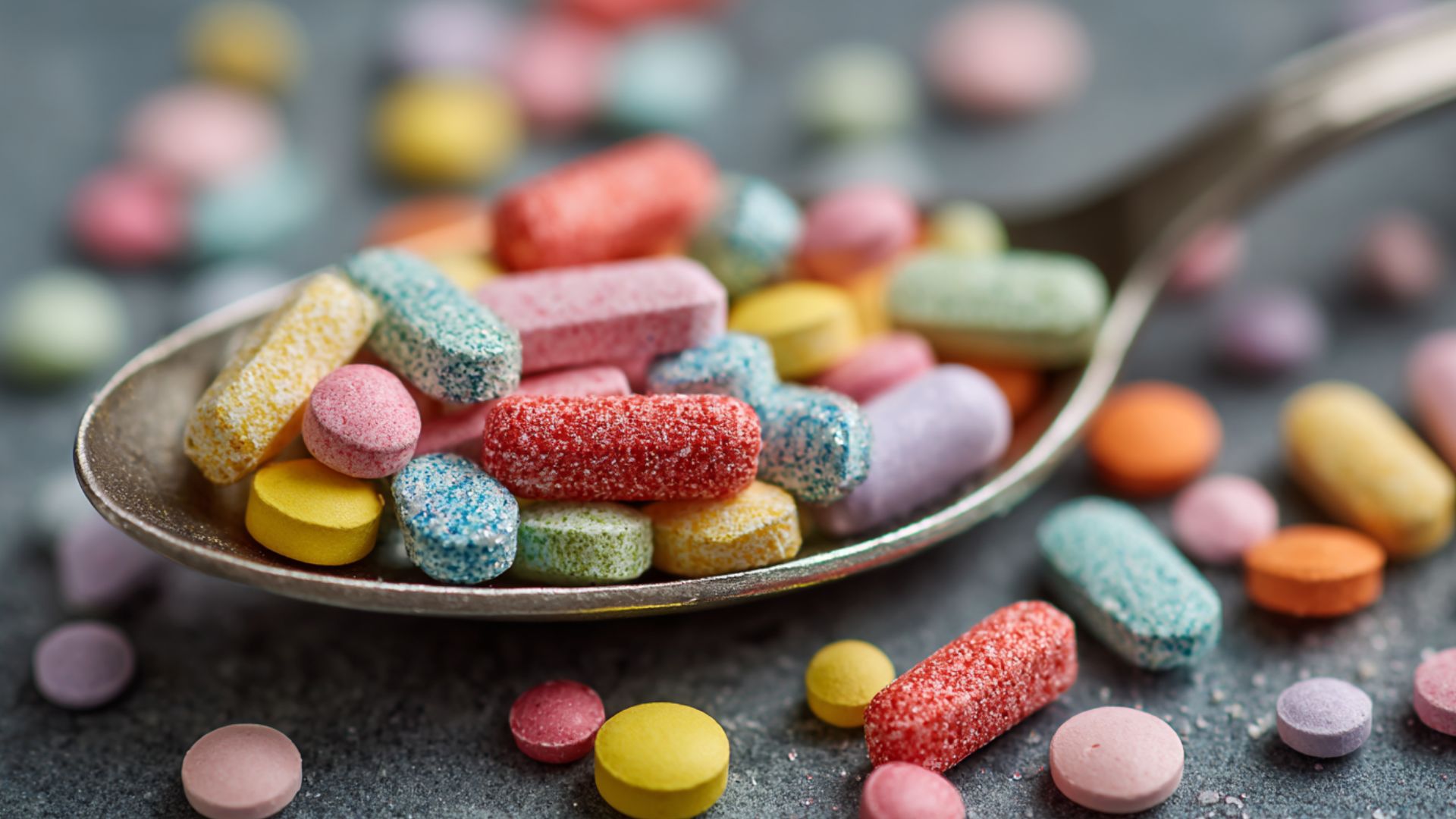Sugar substitutes are making both shoppers and scientists worried. These common food additives promise sweet taste without the calories. But people are starting to question what they do to our brains, thinking, and long-term mental health. Common artificial sweeteners include aspartame, sucralose, and saccharin, often mixed with other additives. These substitutes may affect our brains in ways we don’t expect.
Studies show artificial sweeteners might affect brain chemicals, possibly affecting mood or making it harder to remember things. Other research looks at possible links to brain inflammation or damage from stress. As more people choose these sugar substitutes to be healthier or lose weight, more questions come up about whether they’re safe.
People want clearer, straight answers about these products. Researchers are digging deeper into how these chemicals work in our brains. This interest shows that more people want to understand how what we eat affects our mental health. We all need clear, fact-based information about these risks to make smart choices.
Brain Chemistry and Artificial Sweeteners – What You Need to Know
How artificial sweeteners affect the brain is becoming a big worry as more people use these sugar substitutes. These sweeteners mess with brain chemistry in complicated ways, affecting chemicals like dopamine and serotonin. These brain chemicals control mood, hunger, and how well we think and learn. Artificial sweeteners like aspartame, sucralose, and saccharin taste sweet but don’t have calories. This can “trick” your brain’s reward system, which normally expects energy from sweet foods.
Scientists are finding out how sweeteners change brain chemistry and mental health in surprising ways. When you taste something sweet, your brain releases dopamine, making you feel good. But without real nutrients coming in, this might mess up your brain’s reward signals. Over time, this mix-up could make you less sensitive to dopamine, which might affect your mood and motivation. Sweeteners may also change serotonin levels, which control emotions and appetite. This could lead to more cravings or overeating as your brain tries to get the energy it wants.
The effects of artificial sweeteners on the brain go beyond mood and also hurt thinking and memory. Research shows possible links to brain inflammation or stress that could make it harder to think clearly. While we’re still learning more, these findings raise important questions about what happens to our brains over time. Keeping up with new research helps you make better choices about using sweeteners.
Do Artificial Sweeteners Change the Way We Think?

Whether artificial sweeteners affect how we think is causing big debates among researchers. While artificial sweeteners like aspartame and sucralose help cut calories and manage weight, they might affect how our brains work. Managing weight can help keep your brain healthy by avoiding problems linked to being overweight. But these sweeteners might hurt your ability to think, pay attention, and learn in ways we didn’t expect.
For example, aspartame might interfere with brain chemicals, making it harder to focus. Sucralose has been linked to stress in the brain that could hurt memory. Here’s what researchers are looking at:
- Cutting Calories: Sweeteners help reduce calories and manage weight
- Thinking Problems: May hurt attention, learning, and memory
- Brain Chemicals: Aspartame might mess up chemicals needed for focus
- Brain Stress: Sucralose linked to possible memory problems
- Mixed Results: Studies show different things, and we need more research
The Hidden Risks: Sweeteners and Long-Term Brain Health
How artificial sweeteners affect brain health over time is becoming a serious worry as these products get more popular. Using artificial sweeteners for years may create unexpected risks for your brain. Common sweeteners like aspartame, sucralose, and saccharin could hurt memory and mood, and might even contribute to brain diseases. Research shows they may mess up brain chemicals, possibly increasing the risk of problems like anxiety or depression.
Animal studies show artificial sweetener cognition may cause stress and inflammation in brain areas important for memory. This could make your thinking get worse as you age. Human studies are limited but hint that sweeteners might hurt learning and attention. While we can’t confirm links to diseases like Alzheimer’s, it’s worrying enough to be careful. Sweeteners might also mess up the connection between your gut and brain, affecting mental health through your digestive system.
We urgently need better human studies because what we know now leaves big gaps. If you use lots of sweeteners, you should be careful while researchers work to understand the long-term effects. For now, using them less and choosing natural options might be the best way to protect your brain. Staying informed matters as science keeps uncovering how these common additives affect our brains over the years.
Are Food Additives a Threat to Your Nervous System?
What food additives do to our nervous system is a serious concern about what we eat today. Common artificial additives in everyday foods might be neurological risky for brain function. These include artificial colors, preservatives, and thickeners that most people eat daily without knowing it.
Artificial colors like Red 40, found in candies and sodas, may make kids hyperactive. Sodium benzoate, a preservative in soft drinks, has been linked to headaches and feeling irritable. MSG, which adds flavor to chips and canned soups, is linked to headaches and might be toxic to nerves in large amounts. Thickeners like polysorbate 80 in ice cream may mess up gut-brain signals and possibly affect mood or thinking.
Some additives seem to cause inflammation or stress in the brain, raising worries about long-term health. While we don’t have much human evidence yet, it’s growing. Here are the main points of the neurological impact of food additives:
- Artificial Colors: Red 40 in candies may cause hyperactivity
- Preservatives: Sodium benzoate in sodas linked to headaches
- MSG: Found in chips and instant foods, may cause headaches
- Thickeners: Polysorbate 80 in ice cream may affect mood
- Research Status: Not many human studies yet, we need more research
The Link Between Neurotoxicity and Artificial Ingredients
Neurotoxicity of artificial ingredients is a growing concern in food science and public health. This damage happens when substances hurt nerve cells or mess up how they work and communicate. Artificial ingredients like synthetic colors, preservatives, and flavor enhancers may cause this damage. Kids face extra risks because their growing brains are more easily hurt by toxins.
Common additives show worrying effects on young brains. Red 40 in many candies may increase hyperactivity and attention problems. MSG, common in snacks and processed foods, has been linked to headaches and possible nerve damage at high amounts. Preservatives in juices and other drinks may mess up nerve signals, leading to irritability and mood changes. Being exposed over and over could hurt learning or memory.
The effects on nerves become even more worrying for at-risk groups. Older people and those with nerve problems already face higher risks from these additives. Artificial ingredients may cause stress that damages nerve cells directly. Some research says aspartame might cause inflammation in important brain pathways. Main concerns include:
- What It Means: Damage to nerve cells and brain communication
- Kids at Risk: Growing brains are extra sensitive to additives
- Red 40 Problems: Found in candies, linked to hyperactivity
- MSG Effects: In snacks and soups, may damage nerves
- Research Needs: Not much human data yet, more studies needed
Common sources include almost all processed foods, sodas, candies, and packaged snacks. Cutting down by choosing whole, unprocessed foods is a smart way to protect yourself. More research will help to understand the neurotoxicity of artificial ingredients. Awareness and moderation can protect brain health.
Making Smarter Choices for a Healthy Brain
Protecting your brain starts with choosing natural options to reduce risks from artificial additives. Replace artificial sweeteners like aspartame or sucralose with honey, maple syrup, or stevia. Stevia, which comes from a plant, gives you sweetness without the brain worries of artificial options. For adding flavor, use herbs and spices instead of MSG-filled seasonings. Whole foods like fruits, vegetables, and unprocessed grains reduce your exposure to harmful additives while feeding your brain important nutrients.
The neurological impact of food additives underscores the importance of mindful eating. Smart food choices can protect your thinking and support long-term brain health. Reading labels is a simple but powerful first step. Check ingredient lists on packaged foods like sodas, snacks, and cereals carefully. Avoid artificial additives like Red 40, MSG, or sodium benzoate when you can. These substances have been linked to hyperactivity, headaches, and possible nerve damage.
Building better eating habits supports your brain health for years to come. Cut back on processed foods, which often have multiple worrying additives. Cook at home more to control exactly what’s in your meals. Research shows diets full of natural, whole foods improve memory, focus, and overall brain function. Stay up to date on new studies about how artificial sweeteners and additives affect the brain.
Small daily changes make a big difference over time. Trade sugary drinks for water, herbal teas, or fresh juices. Pick snacks like nuts, seeds, or fresh fruit instead of processed chips and cookies. These simple habits help reduce the nerve effects of food additives while making your thinking clearer. By choosing natural, low-risk options, you actively protect your brain. The smart choices you make today support sharper thinking and healthier brain function tomorrow.












I've given up... the stress her office staff has put me through is just not worth it. You can do so much better, please clean house, either change out your office staff, or find a way for them to be more efficient please. You have to do something. This is not how you want to run your practice. It leaves a very bad impression on your business.
Please, leave your review
Write a comment: